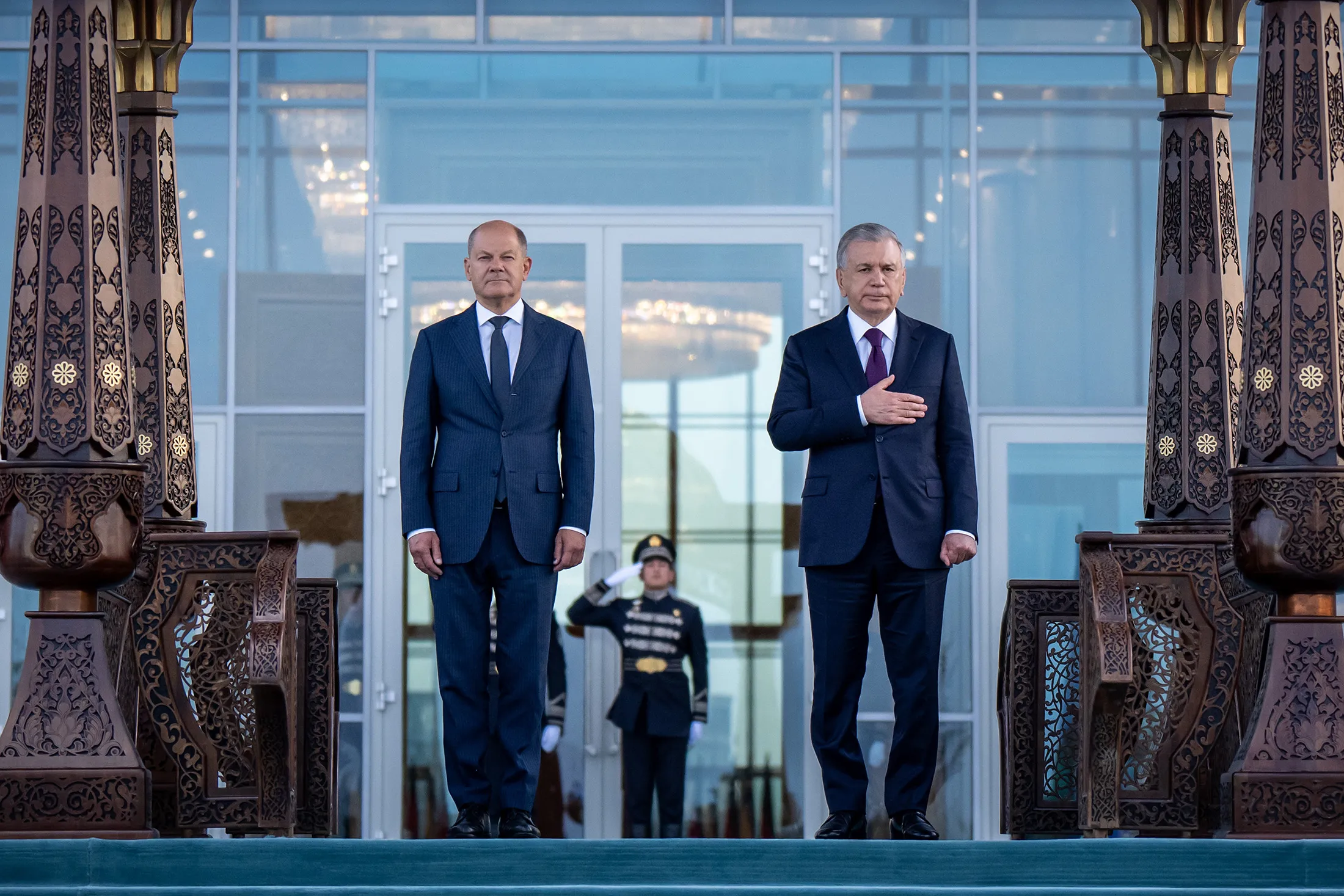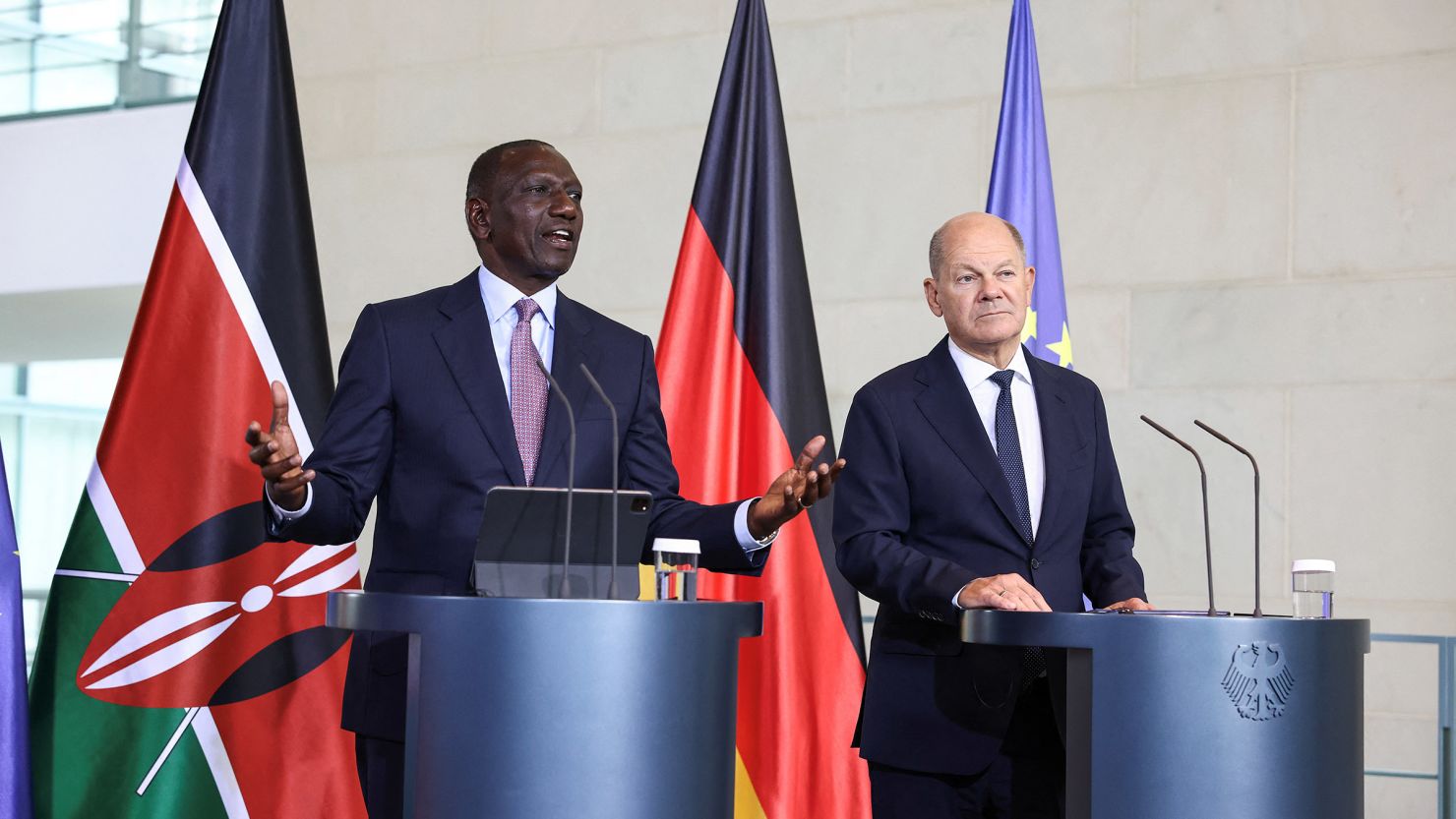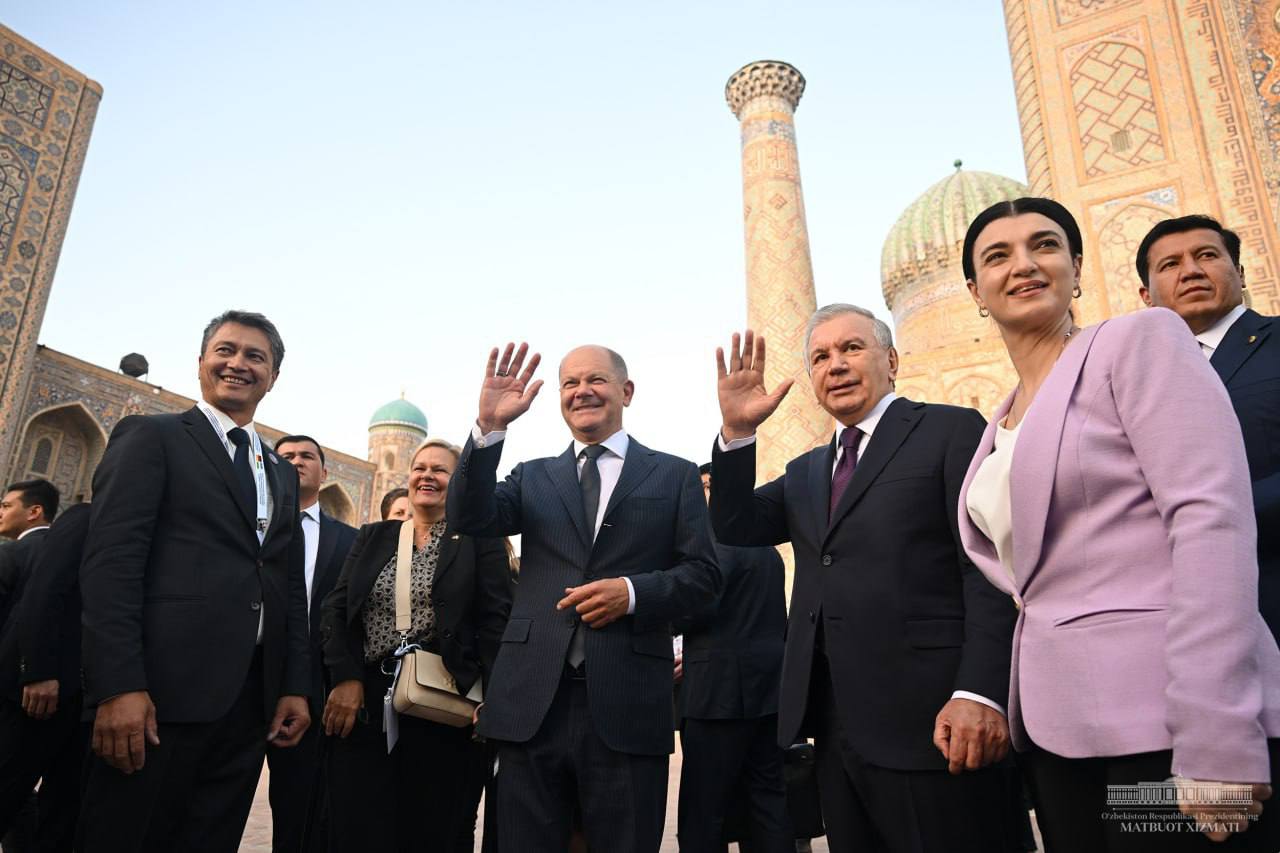
German Chancellor Olaf Scholz signed a bilateral migration agreement with Uzbekistan on Sunday as part of his three-day visit to Central Asia.
The deal, aimed at facilitating the entry of skilled workers from Uzbekistan to Germany, particularly in the care and health sectors, was signed in the ancient city of Samarkand.
https://twitter.com/Bundeskanzler/status/1835367117073355025
Olaf Scholz's post on X
The agreement will help streamline the process for Uzbek workers entering Germany, with a particular focus on filling critical roles in sectors such as health care.
It will also expedite the repatriation of Uzbeks living in Germany without a legal residence permit. Of the 13,700 Uzbeks currently in Germany, only around 200 are expected to be eligible for repatriation.
This marks a key step in Germany’s coalition government’s broader migration policy, following a similar agreement with Kenya last week during Kenyan President William Ruto’s visit to Berlin.
https://twitter.com/Bundeskanzler/status/1834611347947954606

During his visit to Samarkand, a UNESCO World Heritage site and former key stop on the Silk Road, Scholz toured the Registan public square and visited the 17th-century Tilla Kari Mosque.
His next stop will be Kazakhstan, the largest economy in Central Asia, where he will participate in a summit with leaders of the region’s five former Soviet republics: Kazakhstan, Kyrgyzstan, Turkmenistan, Tajikistan, and Uzbekistan.

Scholz aims to strengthen ties with the Central Asian region, especially in the fields of economy, energy, climate, and the environment.
In Kazakhstan, talks are expected to focus on oil and gas supplies to Germany, along with discussions on sanctions against Russia. Germany has been seeking to diversify its economic relations in the region following Russia's invasion of Ukraine in February 2022.
Germany’s previous relationships with Central Asia had largely centered on economic ties with Russia and China, but recent geopolitical shifts have prompted a reevaluation of those alliances. Astana, the capital of Kazakhstan, has faced criticism for potentially enabling the circumvention of trade sanctions imposed on Russia.